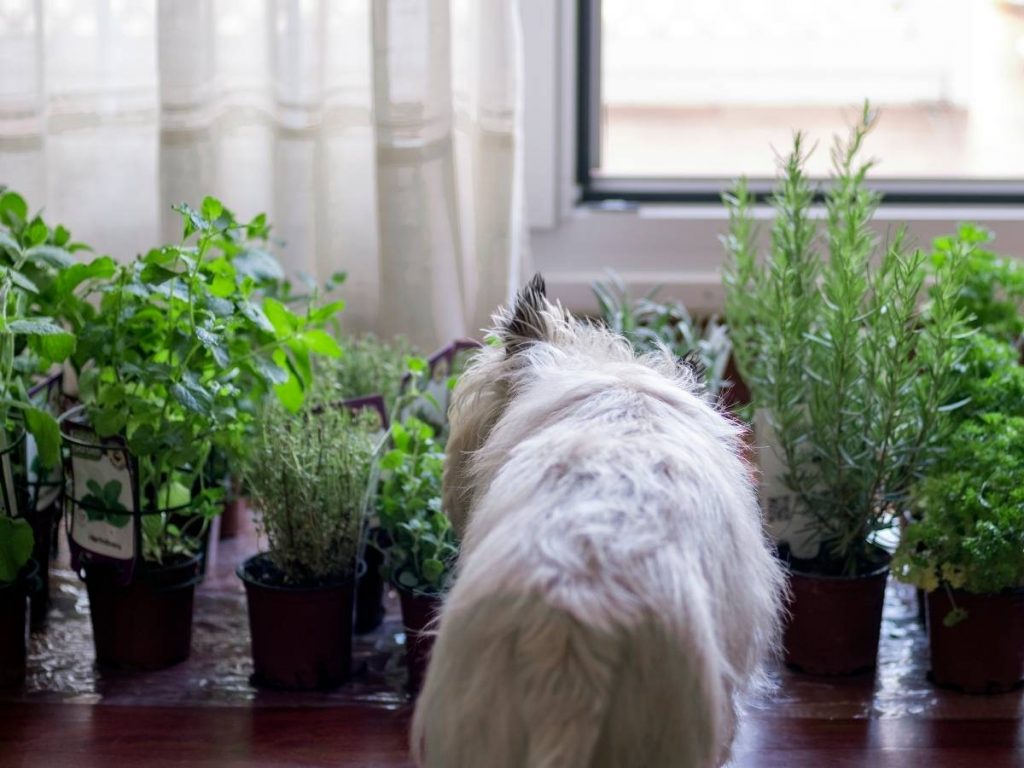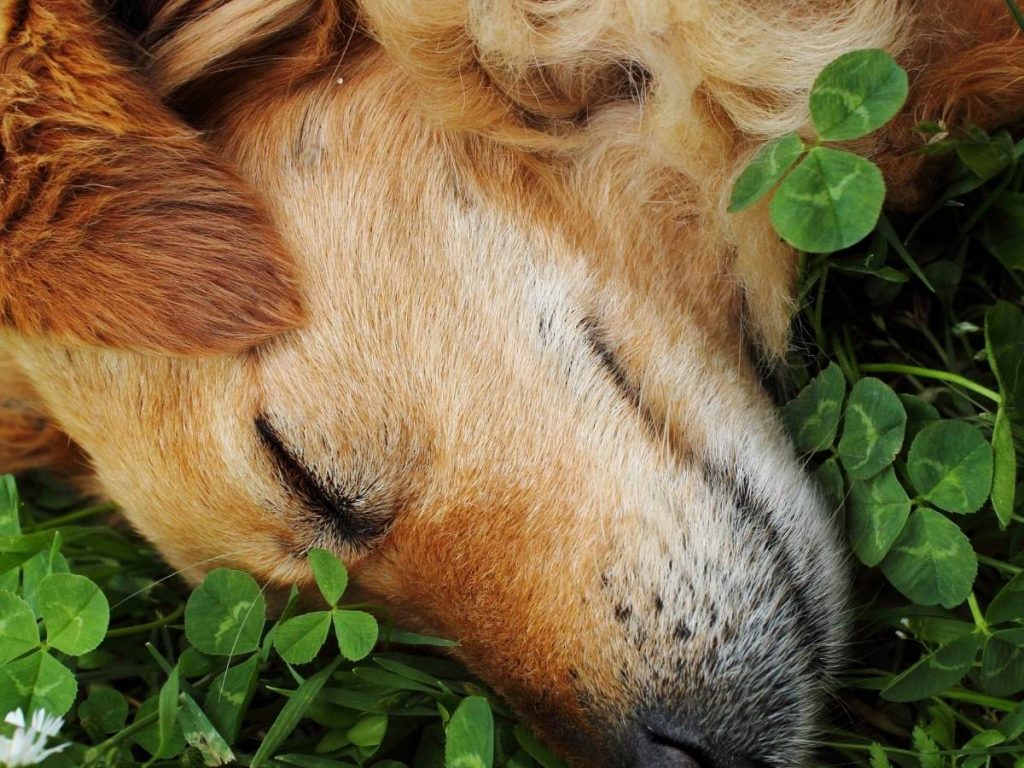Can Dogs Eat Basil?
It’s true that some herbs can be dangerous for dogs. But what about basil? Basil has a whole lot of health benefits for humans. But can dogs eat basil?
The truth is that dogs can indeed eat basil without suffering from any health issues. Of course, this is only if you feed your dog basil in moderation. If you do begin adding basil to your dog’s diet, you can even expect some health benefits.
What things can you give to your Dog?
There are a lot of things that you are able to give to your dog and a number of things that you should never give your dog.

What about Basil?
Basil is a herb known for having properties that prevent cancer and help to prevent arthritis. Basil is also a superfood and safe for dogs to eat both raw and dry. Basil can help to prevent cellular damage. Basil also contains antioxidants to destroy free radicals that would otherwise damage cells and potentially cause deadly cancer.
Not only that, but basil can also help prevent certain diseases because of its high levels of antioxidants. Heart disease and arthritis are two of the main health issues that come with aging dogs – and these can help be prevented by adding basil to a pup’s diet.
There are also anti-inflammatory properties which can help dogs already suffering from mild arthritis. Rather than sticking your dog on painkillers, try basil instead!
Finally, everyone knows dogs can get nervous. In the car, at a fireworks show – dogs can suffer from anxiety. Basil actually works as a calming agent that acts as a natural sedative for your dog. If you’re worried about your dog suffering from anxiety, feed them some basil to calm them down. It’s far safer than giving them prescription meds.

How Much Basil Can I Give My Dog?
You shouldn’t give your dog too much basil. Regardless of the health benefits, basil still must be eaten in moderation. Because basil is so fibrous, eating too much can give your dog gastrointestinal issues. Too much basil can upset your dog’s stomach, induce vomiting, and give them diarrhea.
In general, try feeding basil to your dog chopped up and mixed into their food once a day. This will offer great health benefits.
How Do I Feed My Dog Basil?
There are a few favourite ways to feed a dog basil. You obviously don’t want to give nothing but basil to your dog for dinner. That wouldn’t be much of a meal. Instead, add some basil to your dog’s ordinary food or sprinkle it over some doggie treats.
Think of adding basil to dog food like adding salt to your potatoes. Sprinkle the basil on in a realistic quantity. Don’t saturate their food with basil leaves. Instead, just sprinkle a small amount into their dish. You may also want to mix the sprinkled basil in with their food, like a salad.
Can Basil Kill Dogs?
Basil does not have a history of killing dogs. Basil is not toxic or poisonous to dogs. However, some dogs can be allergic to basil. For this reason, it’s important that you stay vigilant when introducing basil to your dog’s diet. This is true for any new food.
When introducing your dog to basil, be sure to watch for any negative side effects. These side effects usually manifest in allergic reactions. If your dog experiences breathing issues or comes down with a rash, or if their skin gets red and itchy, they are having an allergic reaction and you need to never feed them basil again.
Keep in mind that an allergic reaction to basil is very rare. But still, it’s better to be safe than sorry.
Can a Dog Eat Too Much Basil?
Dogs can absolutely eat too much basil. It does take a lot of basil to make a dog sick, but it is possible. Eating too much of anything can make any animal sick. If your dog becomes nauseous, starts vomiting, or experiences explosive and persistent diarrhea, they’ve probably eaten too much basil.
The only good news is that a dog won’t die from eating basil. It’s just not something that happens.
What Herbs Are Toxic to Dogs?
Basil is a totally safe herb for dogs. But what herbs are toxic to dogs?
Aloe vera is a common herb found in lots of households and it’s very toxic to dogs. Never feed your dog aloe vera. It may have health benefits for humans, but in dogs it causes diarrhea, vomiting, and lethargy.
Ivy is another herb terrible for dogs. But ivy is also terrible for people. Keep poison ivy far away from dogs. It makes humans a little bit itchy. If your dog eats or even becomes exposed to poison ivy, it can make them drool excessively, it can cause diarrhea and vomiting, and they may suffer abdominal pain.
Garlic is without a doubt one of the worst herbs you can give to a dog. This includes everything in the garlic family, such as onions and leeks and chives. These herbs are dangerous for dogs and cats alike. In fact, you should never give your pets anything that has been in contact with garlic. This includes garlic fingers, anything seasoned with garlic, and of course, garlic itself.
Unlike some of the other toxic herbs, garlic can cause serious issues. Your dog may suffer from rapid and irregular breathing, an elevated heart rate, and violent vomiting and diarrhea.
Amaryllis is a popular herb used frequently in people’s home garden. It’s totally harmless to humans but poisonous for dogs. And because dogs are curious and love to chew plants, you should get rid of any amaryllis that you have planted in the house.
What Herbs Are Good for Dogs?
There are some herbs that are beneficial for dogs other than basil. Cinnamon can help to improve brain function. Coriander is great for dental health. Dandelion is rich in potassium and can help your dog’s liver. Ginger is an anti-inflammatory that aids digestion, blood circulation, and helps to alleviate travel sickness.
Mint is a fantastic herb to keep your dog’s breath fresh. Peppermint is good for digestion. Rosemary assists the nervous system and promotes healthy heart function. And last but not least, sage is fantastic for easing bloating and gas in a dog that’s already having problems with its stomach.
Similar Articles – Can you give Pepper to your Dog?
